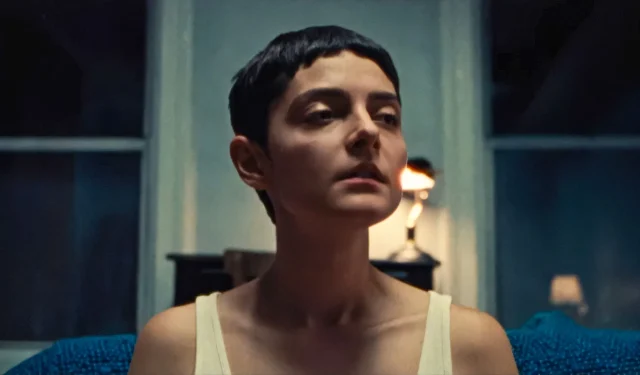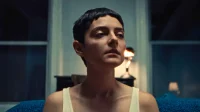The film Gazer captures the essence of the neo-noir genre, featuring striking elements such as a compelling femme fatale and a captivating jazz-infused soundtrack. Ariella Mastroianni stars as Frankie, a young woman grappling with a fractured relationship with her daughter and an unstable employment situation. Following a traumatic incident linked to her husband and her own deteriorating neurological condition known as dyschronometria, Frankie’s grasp on time is increasingly tenuous. The narrative immerses viewers in her disorienting world, where her soothing voice—recorded on a device she carries—offers a fragile semblance of solace.
Created as a collective effort between co-writer and director Ryan J. Sloan and Mastroianni, Gazer emerges from a place of deep connection to its New Jersey roots. The film is not just a movie; it’s a passion project, having been shot over the course of two years on 16 mm film. This grassroots effort, with its microbudget, serves as a refreshing contrast to the polished but somewhat hollow productions typical in the genre. The film’s raw, unrefined tension mirrors Frankie’s turbulent journey, pulling audiences into her experience, even amidst its inherent uncertainty.
Gazer Employs Surrealism to Elevate Its Realism
Frankie’s Unique Struggles Reflect a Universal Narrative
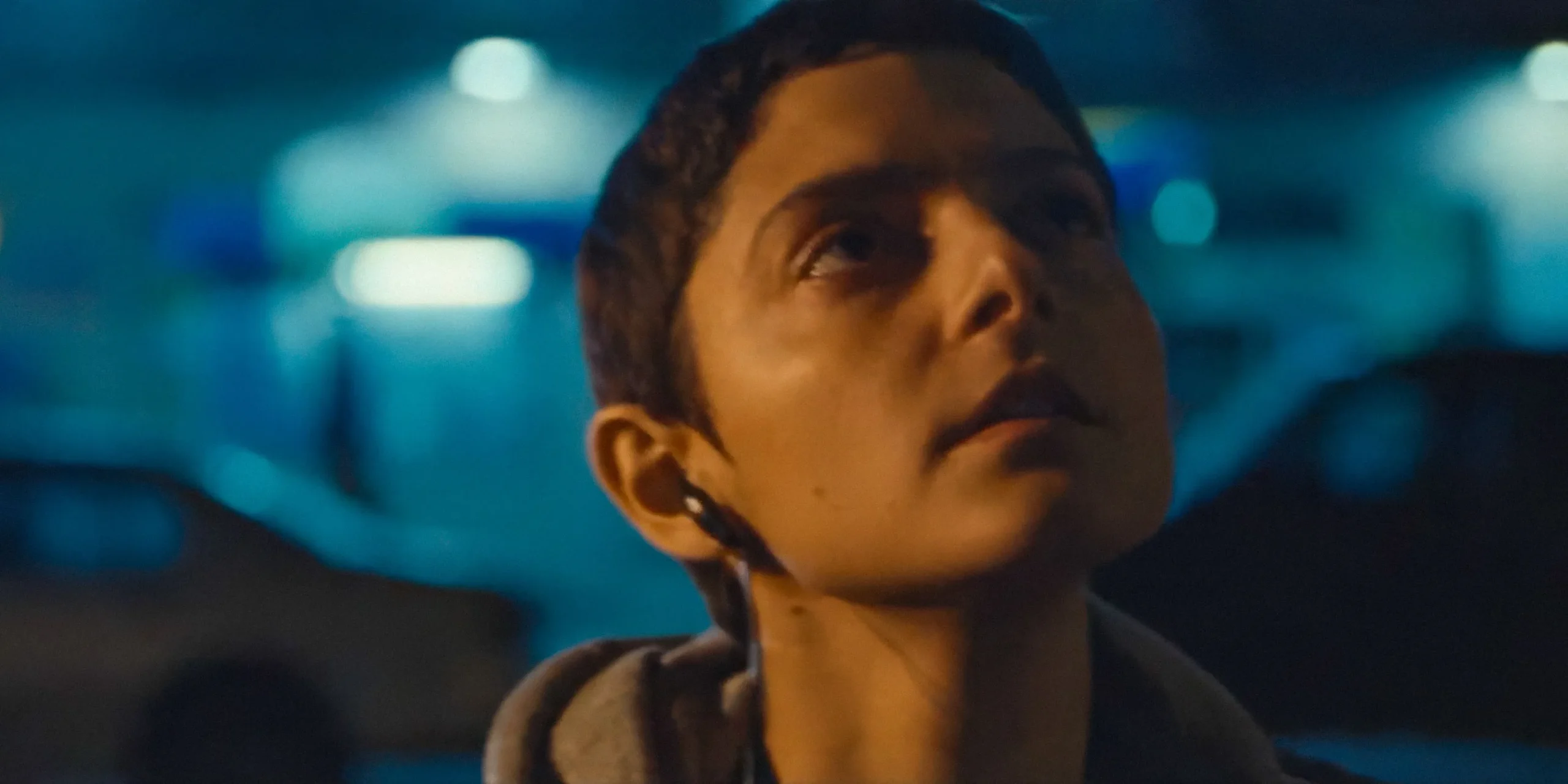
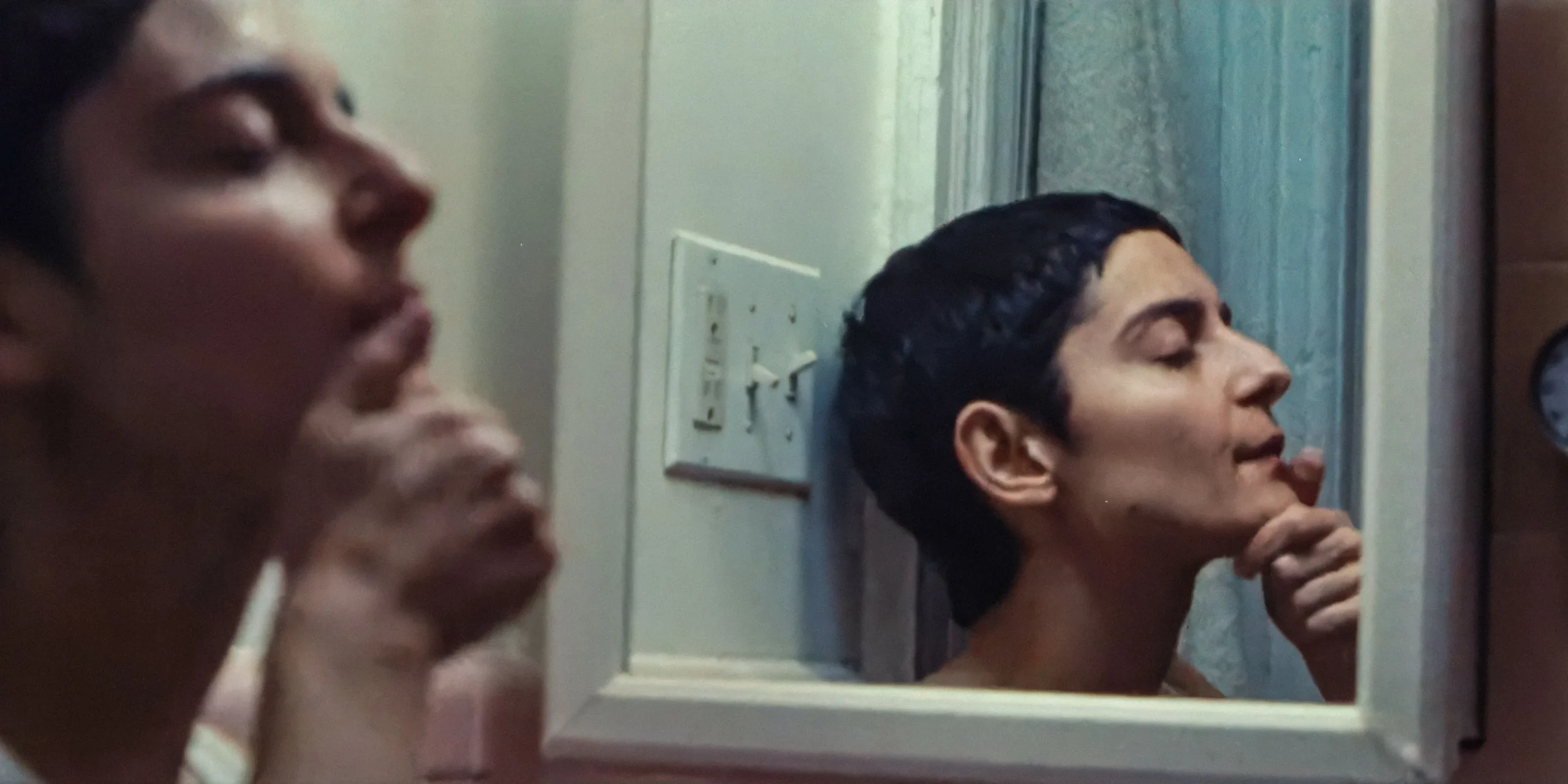
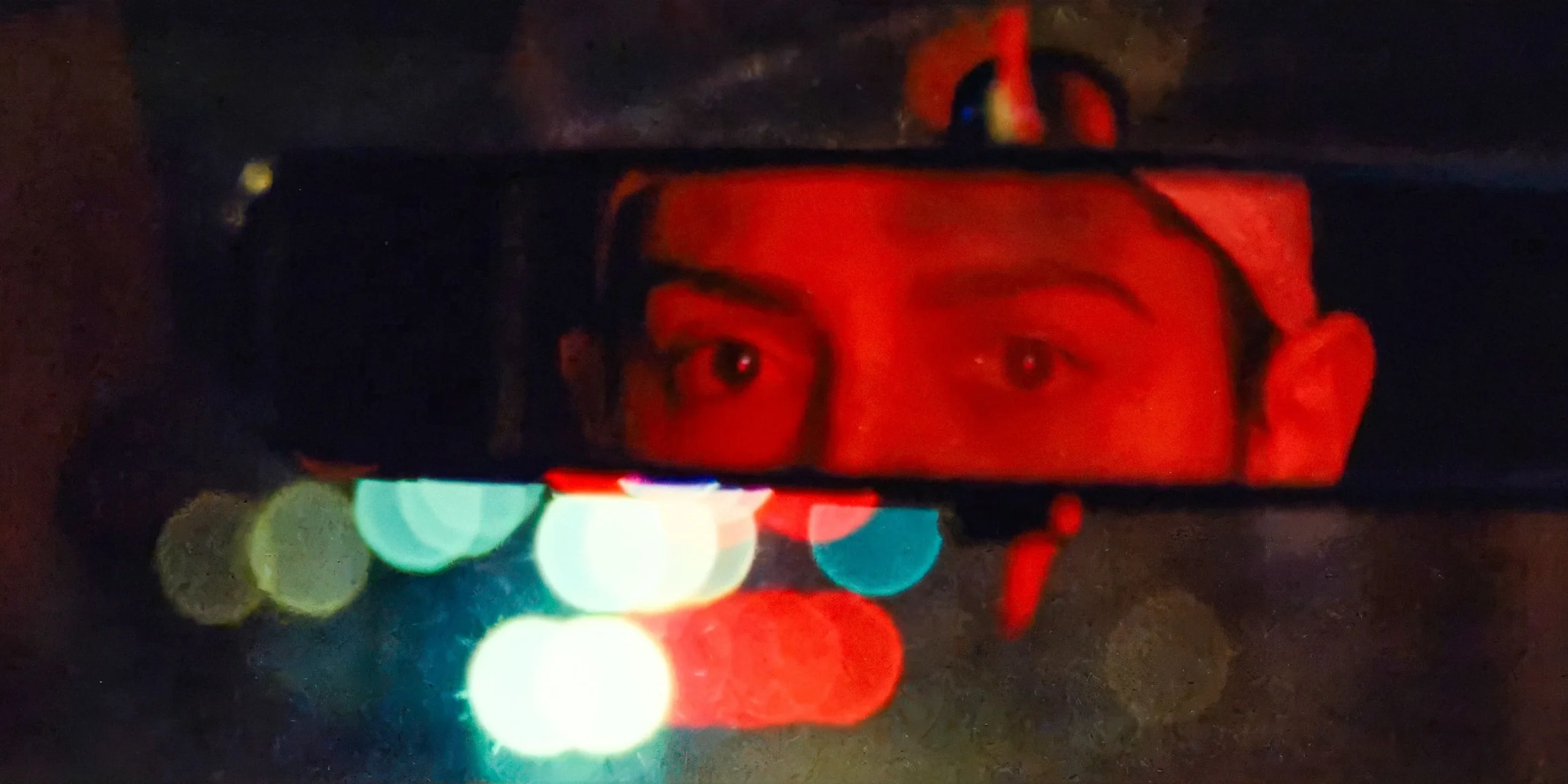
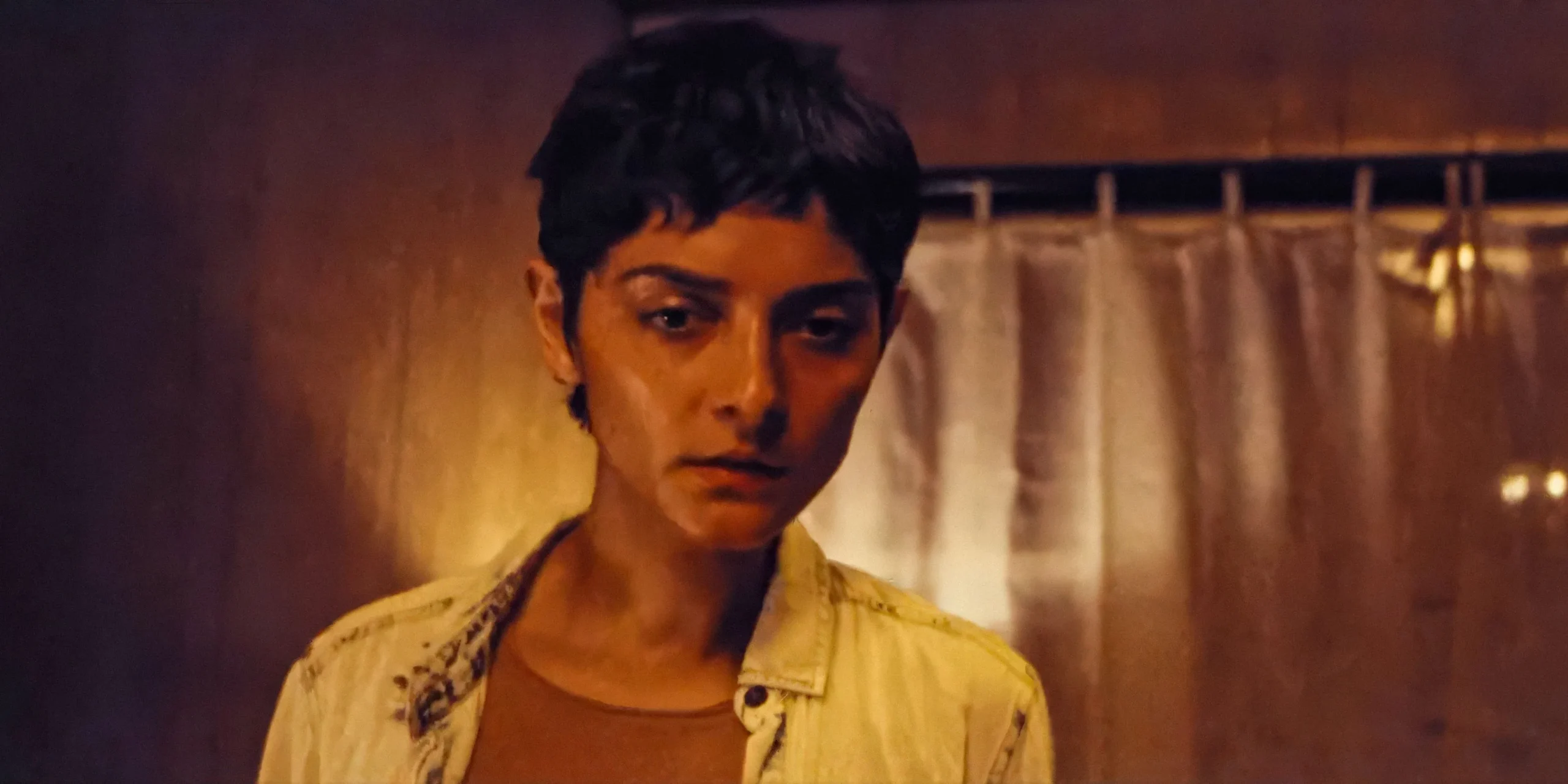
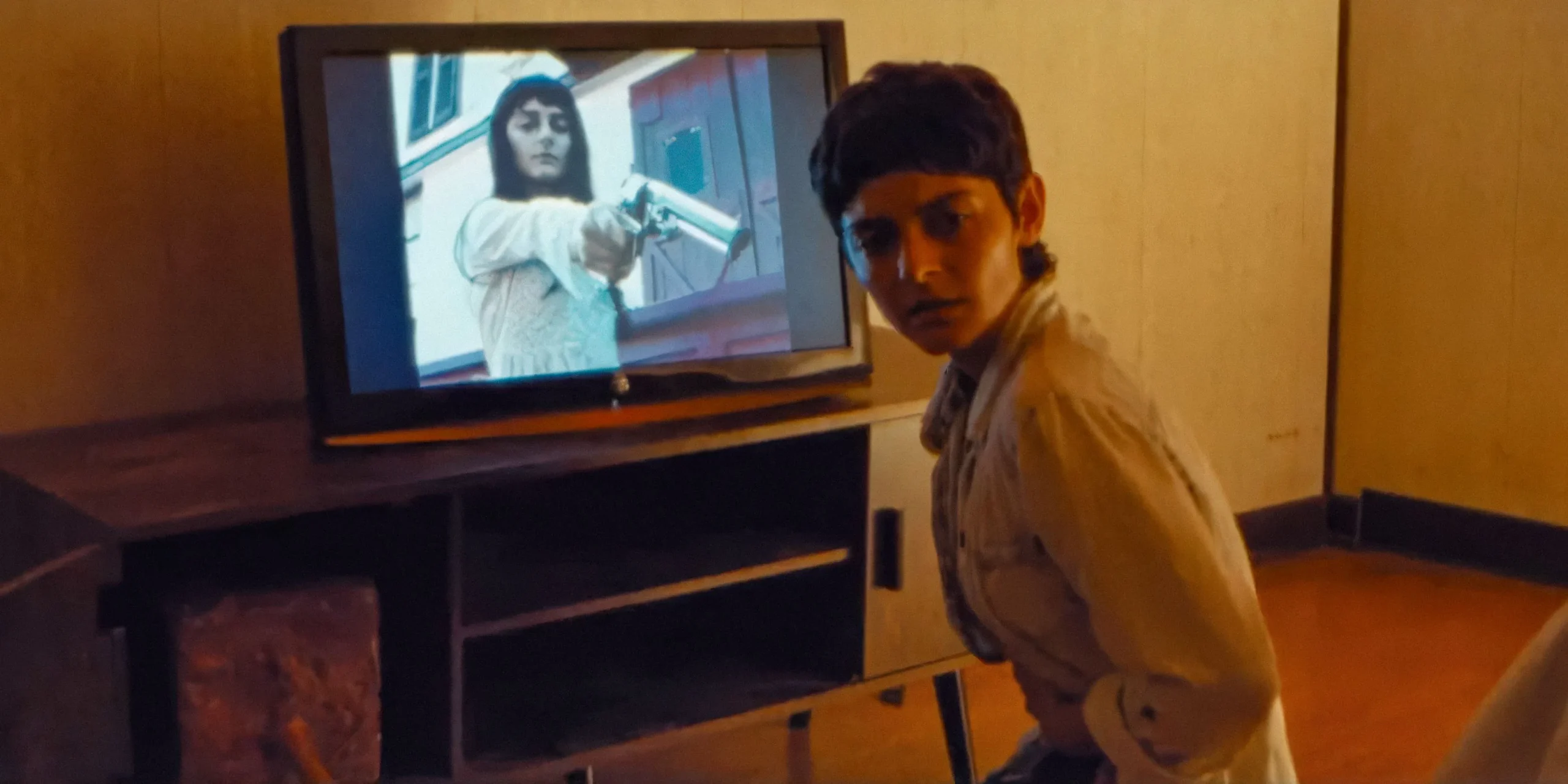
The influence of dyschronometria is a pivotal element of Gazer. If stripped away, the film might resemble any standard noir: Frankie ensnared in a web of deception and murder in pursuit of quick riches. Yet, her broader struggles resonate universally. At her core, Frankie is simply striving to secure a future for her daughter—a daughter whose presence is felt only in the film’s closing moments. This longing drives her forward even as her life seems to unravel.
However, to dismiss Frankie’s motivations as purely financial would be misguided. While her initial actions may seem transactional, Gazer delves deeper, portraying Frankie’s quest for purpose amid chaos. She yearns for affirmation that her previous life and choices were not solely to blame for her current circumstances and hopes to find meaning through helping another troubled soul, played by Renee Gagner. This desire resonates profoundly, echoing Frankie’s internal struggle as she searches for clarity in a world filled with uncertainty.
The film deliberately distances us from technological distractions, emphasizing Frankie’s detachment from contemporary life. As viewers, we experience her fragmented existence in a way that feels intentional and significant.
Gazer hinges heavily on Mastroianni’s performance, which evokes empathy and connection—even in the absence of detailed character background. The film features surreal interludes that momentarily disrupt the narrative flow, immersing us deeper into Frankie’s perspective and the disarray of her life. While these moments might not always serve a clear narrative purpose, they effectively disrupt the viewer’s expectations, creating a visceral juxtaposition against the film’s more grounded elements.
Despite some narrative inconsistencies, the film’s ambitious production fosters a captivating atmosphere. Utilizing Frankie’s condition, the filmmakers enhance the storytelling experience, keeping viewers engaged and continuously questioning the unfolding scenario. The absence of modern technology not only places the audience on the fringes of Frankie’s world but also underscores the meaningful disconnection from her reality.
Gazer’s Twists May Lack Shock Value, Yet They Maintain Emotional Resonance
Gazer Invites Us into Frankie’s Universe, Evoking Genuine Emotion
The central mystery of Gazer may not break new ground, echoing plotlines familiar to seasoned filmgoers. Nonetheless, Sloan and Mastroianni prioritize narrative immersion over plot twists, seeking instead to enthrall audiences with Frankie’s dual tragedy and resilience. While Frankie’s fate is not unforeseen, the emotional weight of her circumstance draws viewers in, highlighting the urgency of her situation and the limited time she has to rectify her missteps.
Like its title suggests, Gazer compels audiences to observe and ponder whether Frankie can conquer the challenges that isolate her. The deliberately measured pacing of the film encourages viewers to piece together the narrative slowly, scrutinizing every interaction and moment. If Sloan and Mastroianni have crafted something profound within their resource constraints, the promise of their future projects looks exceptionally bright.
